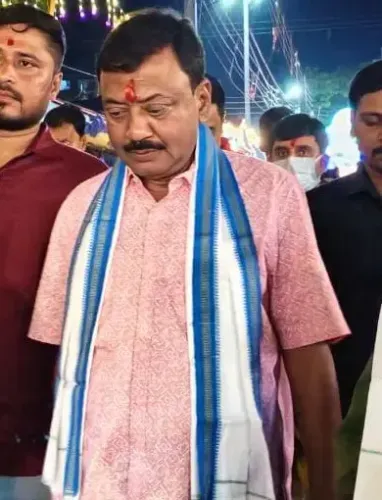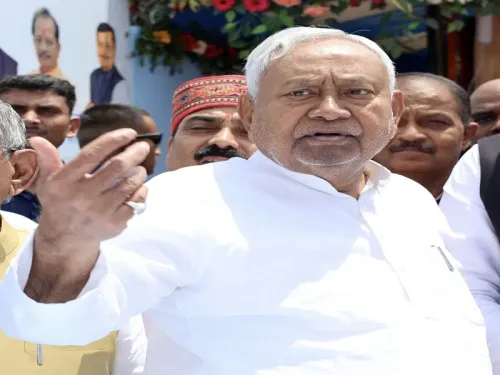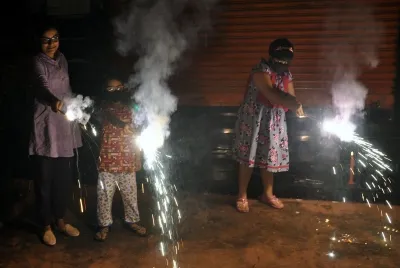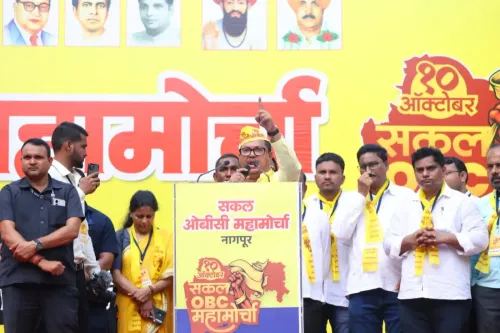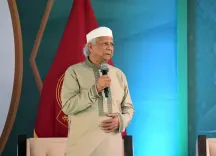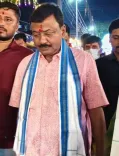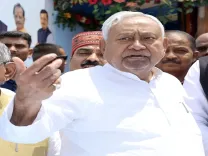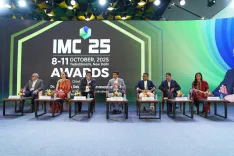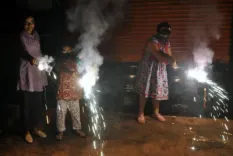Is the Supreme Court Challenging the Ban on Prisoners’ Voting Rights?
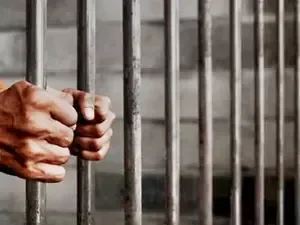
Synopsis
Key Takeaways
- Supreme Court reviews PIL on prisoners' voting rights.
- Challenges the blanket ban affecting 4.5 lakh prisoners.
- PIL argues violation of constitutional rights.
- Calls for restoring voting rights based on legal grounds.
- Highlights the issue of presumption of innocence.
New Delhi, Oct 10 (NationPress) The Supreme Court has decided to review a public interest litigation (PIL) that challenges the comprehensive ban on voting rights for around 4.5 lakh pre-trial, undertrial, and non-finally convicted prisoners throughout India.
In issuing a notice, a Bench led by Chief Justice of India (CJI) B.R. Gavai and Justice K. Vinod Chandran requested responses from both the Centre and the Election Commission of India (ECI) regarding this matter.
The petition, submitted by advocate Prashant Bhushan, contends that the all-encompassing disqualification as per Section 62(5) of the Representation of the People (RPA) Act, 1951, infringes upon constitutional rights and international obligations.
The PIL asserts that the right to vote is derived from being included on the electoral roll, and under Article 326, in conjunction with the RPA, disqualifications should only be on the basis of non-residence, mental incompetence, or involvement in corrupt and illegal practices.
“According to Section 16(1)(c) of the RPA 1950, the disqualification from voting is based solely on these three conditions: (1) not being a citizen of India, (2) being of unsound mind as declared by a competent court, or (3) being disqualified under any law concerning corrupt practices and other election-related offenses,” the plea highlighted.
It argued that Section 62(5) of the RPA 1951, which was initially intended for members of legislative bodies, inadvertently enforces a comprehensive ban on all incarcerated individuals who are otherwise eligible voters.
The PIL further claimed that applying this provision to voters “does not fulfill necessary legal requirements, including consistency with the constitution, non-arbitrariness, clarity, precision, completeness, and fairness,” and “diminishes public trust in the rule of law.”
It also invoked the principle of presumption of innocence, noting that over 75 percent of prisoners in India are pre-trial or undertrial detainees, many of whom endure incarceration for extended periods.
“In 80 to 90 percent of cases, these individuals are ultimately acquitted, yet they are deprived of the essential democratic right to vote for decades,” the petition stated.
“If a prisoner or convicted individual is allowed to contest elections, how can ordinary citizens—who have not been declared convicted—be denied the right to vote and select their own representatives?” questioned the PIL.
The plea argued that given the government's logistical capabilities, enabling prisoner voting is both practical and constitutionally necessary, suggesting the establishment of polling stations in approximately 1,350 jails nationwide and the use of postal ballots for inter-state voters.
It emphasized that neither the Indian Penal Code (IPC) nor the Bharatiya Nyaya Sanhita (BNS) allows for the revocation of voting rights in the contested manner. The petition pointed out that globally, no blanket bans on voting rights are observed, and such rights could only be limited “following an individual judicial decision, final conviction for specific offenses, and the duration of the sentence, or where such disqualification is part of a judicial sentence.”
Wherever blanket bans have been implemented, the PIL noted, “such bans have frequently been deemed unconstitutional by the competent courts in those countries.” Moreover, it highlighted that even in Pakistan, undertrial and pre-trial prisoners are permitted to retain their voting rights.

